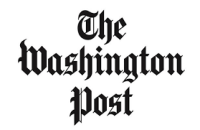Nuclear Power Primed for Comback: Demand, Subsidies Spur US Utilities

"To ease financial concerns, the nuclear power industry has turned to Congress. Among the biggest reasons for renewed interest in nuclear power are the tax breaks, loan guarantees and other subsidies in the Energy Policy Act of 2005.
Those benefits were "the whole reason we started down this path," Crane said after filing NRG Energy's license application. "If it were not for the nuclear provisions in there, we would not have even started developing this plan two years ago."
For each nuclear plant seeking federal approval before the end of 2008, the act provides tax credits of up to $125 million for eight years, loan guarantees for up to 80 percent of a plant's cost, shared application costs and insurance that would cover the costs of regulatory delay.
Nuclear plants also receive other subsidies, including local tax breaks and limits on liability for catastrophic accidents.
Many utility executives, however, say they need more.
Designed for a variety of "innovative new energy technologies," the loan guarantee program was initially limited to $2 billion, less than the cost of a single reactor. The nuclear industry has been lobbying Congress to expand it to $50 billion or more. A Senate appropriations bill would remove the ceiling altogether.
Designed for a variety of "innovative new energy technologies," the loan guarantee program was initially limited to $2 billion, less than the cost of a single reactor. The nuclear industry has been lobbying Congress to expand it to $50 billion or more. A Senate appropriations bill would remove the ceiling altogether.
The guarantees and subsidies may be too small for would-be nuclear plant builders, but they're too big for many budget experts.
"I don't take the position that there should be no nuclear power, but I believe that the price of the energy they produce should be reflective of their actual cost structure and they should not be shifting their risk of cost overruns and poor performance to us, the taxpayers," said Doug Koplow, a Cambridge, Mass., researcher whose Earth Track consultancy monitors government energy subsidies...

